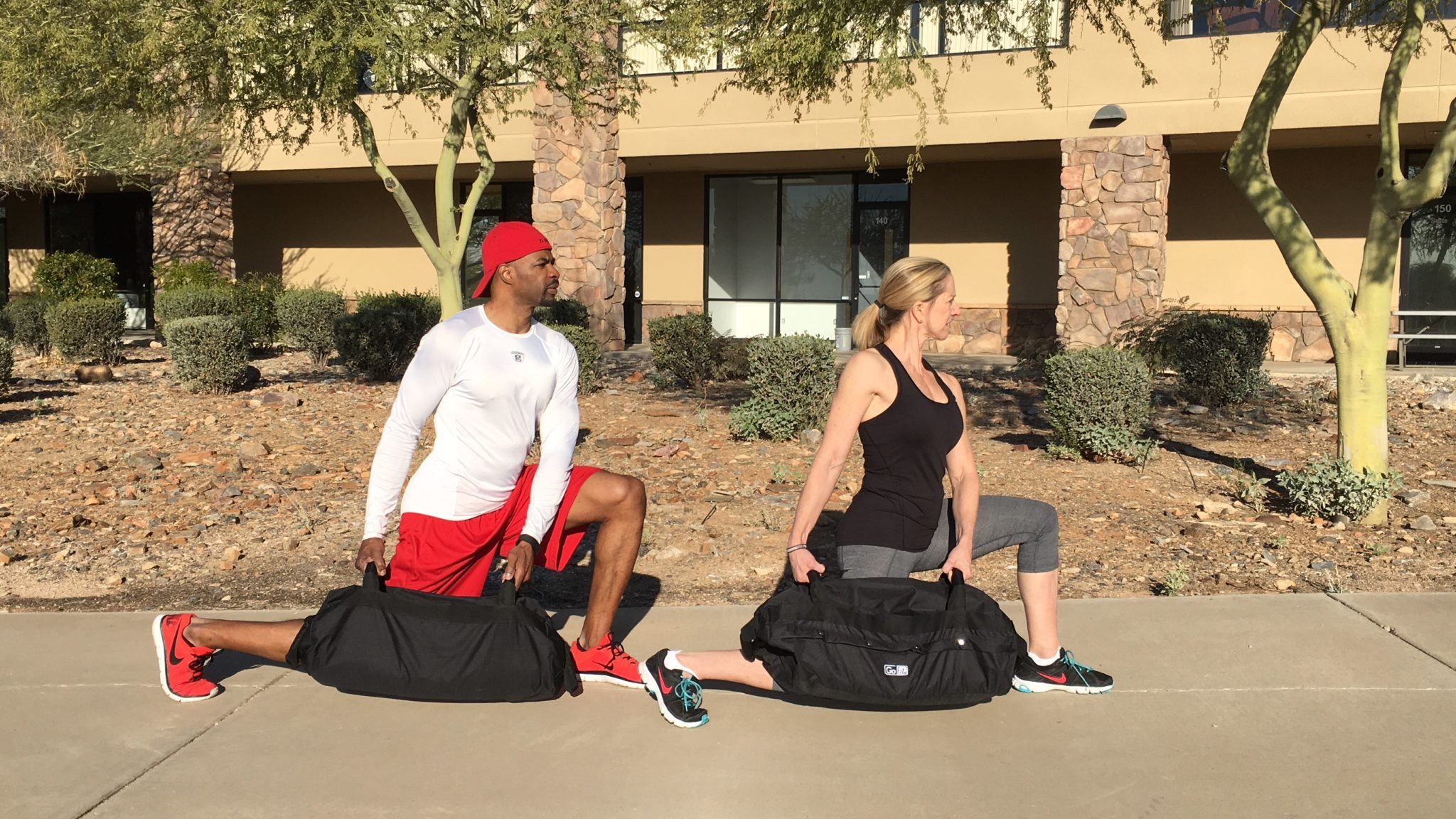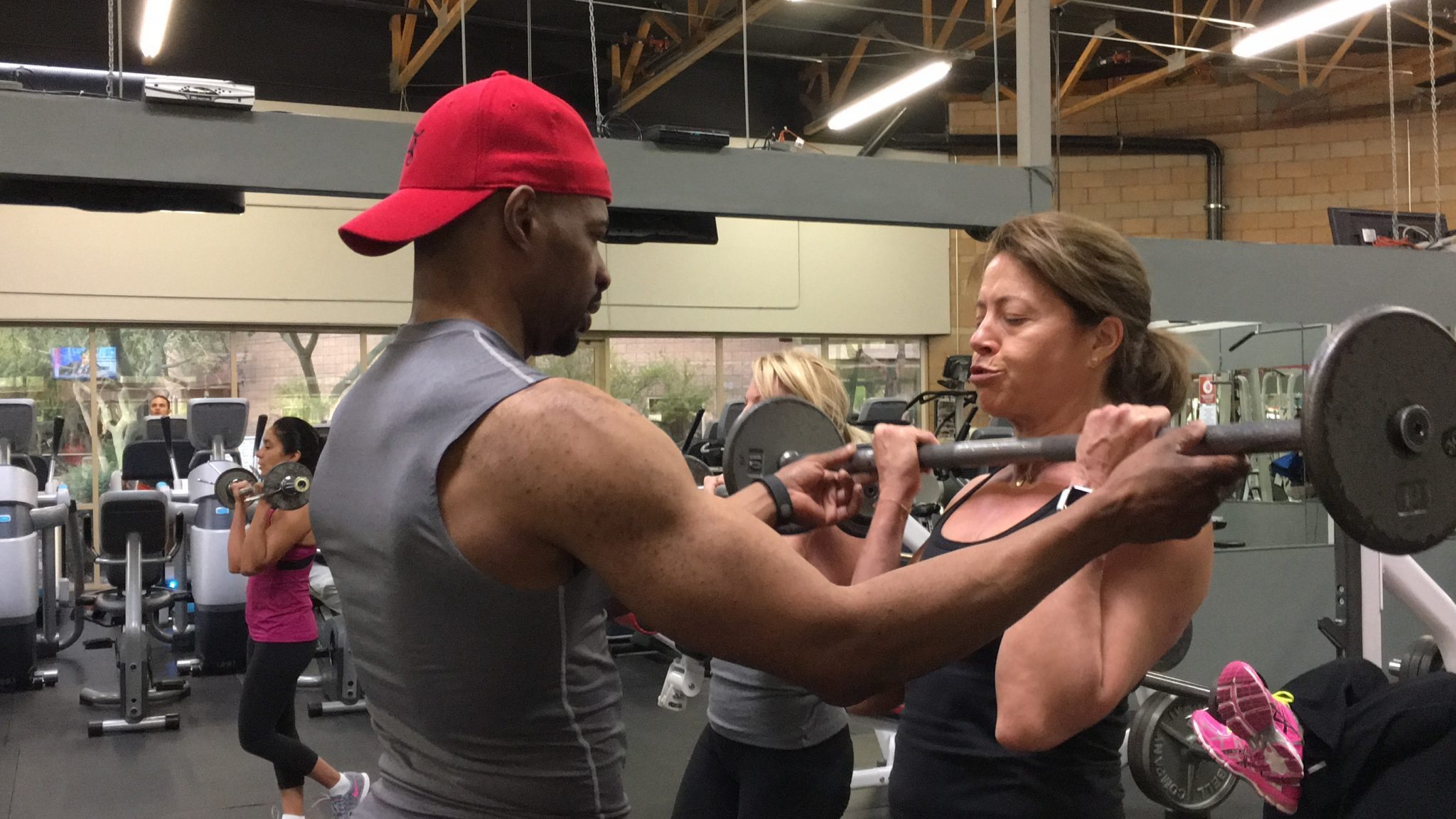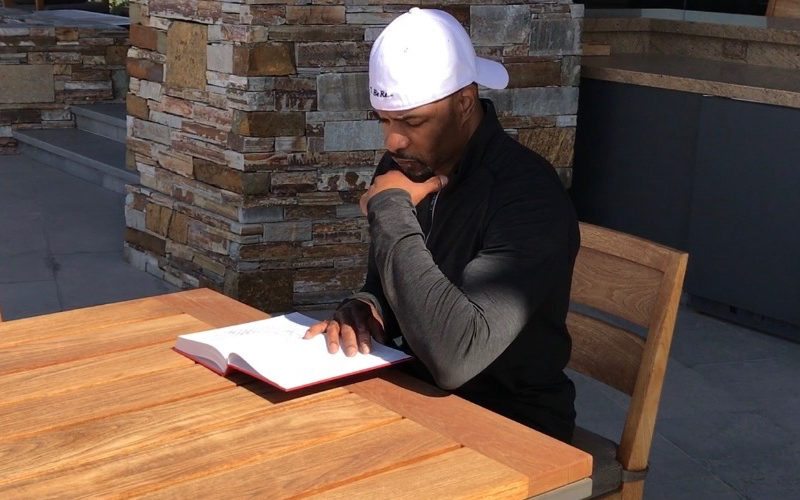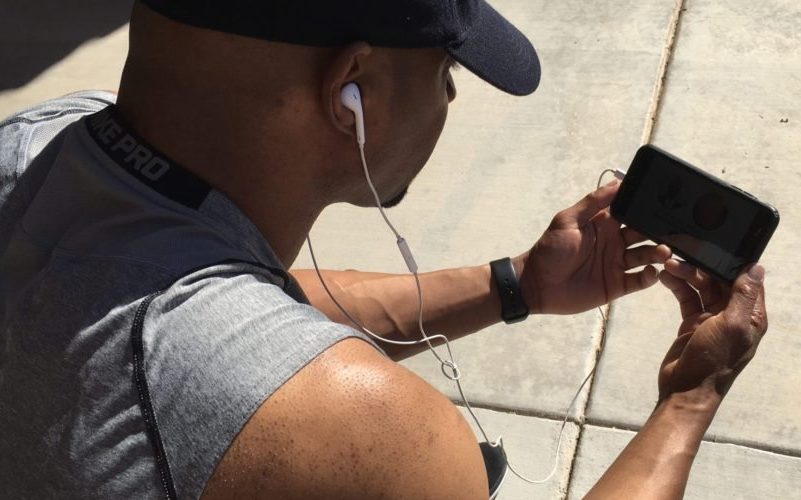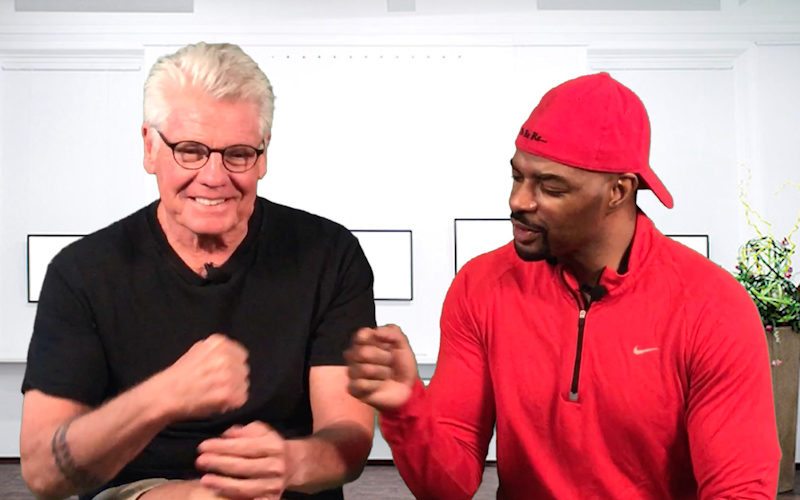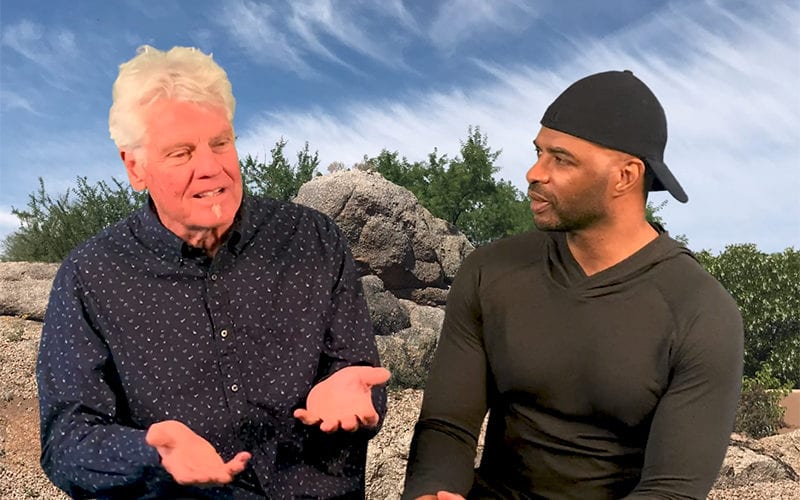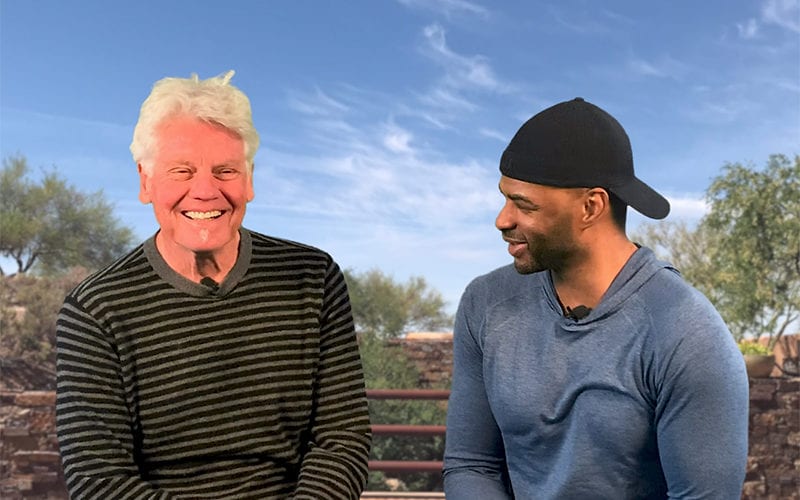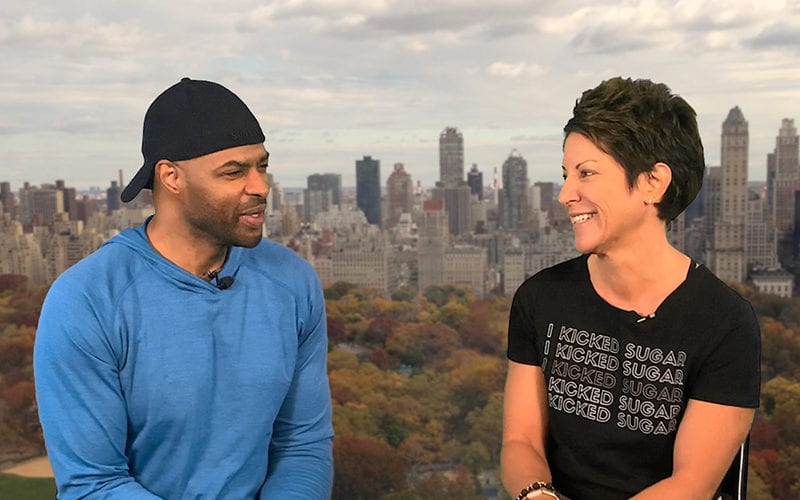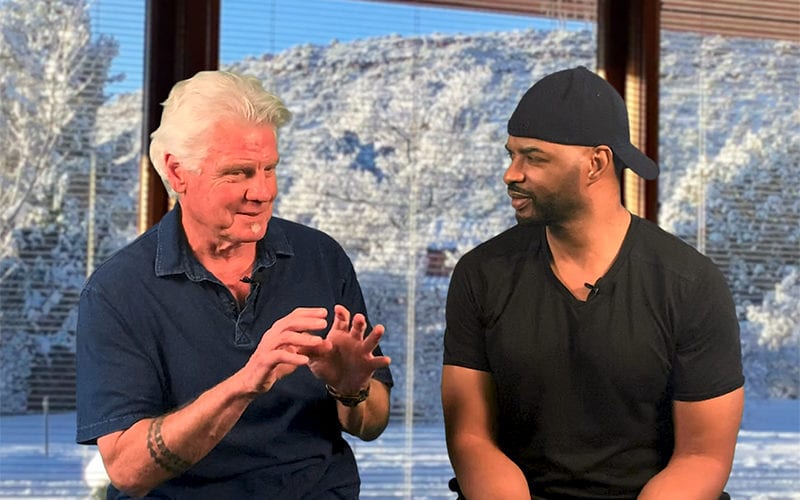Challenging people can be, well, challenging. And so can difficult times. When it comes to dealing with either or both, you have a choice. They can either get the best of you or you can choose to learn from them and grow. The guys discuss how they see challenging people and situations.
tobere
In this episode, Rick and Keith talk about the Laws of Attraction and what is meant by “what you put out, you get back”. We think you will find the conversation both interesting and freeing.
ToBeRe… community member Lisa K requested we do a podcast on Victimhood. She wanted our take on how we define victimhood and how to recognize it; even if it’s us who play the victim. In this podcast, the guys respond to Lisa’s request.
Keith’s References:
Nelson Rolihlahla Mandela was a South African anti-apartheid revolutionary, politician, and philanthropist, who served as President of South Africa from 1994 to 1999. He was the country’s first black head of state and the first elected in a fully representative democratic election. Prior to this, Mandela served 27 years in prison, initially on Robben Island, and later in Pollsmoor Prison and Victor Verster Prison. Widely regarded as an icon of democracy and social justice, he received more than 250 honours—including the Nobel Peace Prize. He is held in deep respect within South Africa, where he is often referred to by his Xhosa clan name, Madiba, and described as the “Father of the Nation”.
Mother Teresa, known in the Catholic Church as Saint Teresa of Calcutta, was a Roman Catholic nun and missionary. In 1950 Teresa founded the Missionaries of Charity, a Roman Catholic religious congregation which had over 4,500 sisters and was active in 133 countries in 2012. The congregation manages homes for people dying of HIV/AIDS, leprosy and tuberculosis; soup kitchens; dispensaries and mobile clinics; children’s- and family-counseling programs; orphanages, and schools. Members, who take vows of chastity, poverty, and obedience, also profess a fourth vow: to give “wholehearted free service to the poorest of the poor”. Teresa received a number of honours, including the 1962 Ramon Magsaysay Peace Prize and 1979 Nobel Peace Prize. She was canonised (recognised by the church as a saint) on 4 September 2016, and the anniversary of her death (5 September) is her feast day.
Jalen Anthony Rose is a former American professional basketball player and current sports analyst with ESPN. Rose also hosts an ESPN podcast with David Jacoby called Jalen & Jacoby. In college, he was a member of the University of Michigan Wolverines’ “Fab Five” that reached the 1992 and 1993 NCAA Men’s Division I Basketball Championship games as both freshmen and sophomores. Rose played in the NBA for six teams, most notably alongside Reggie Miller on the Indiana Pacers teams that made three consecutive Eastern Conference finals, including the 2000 NBA Finals. Rose was primarily a small forward; however, he sometimes played the role of a shooting guard.
Rick’s References:
Earth, Wind & Fire (EWF) is an American band that has spanned the musical genres of R&B, soul, funk, jazz, disco, pop, rock, Latin and African. They are one of the most successful bands of all time.[1][2] Rolling Stone Magazine described them as “innovative, precise yet sensual, calculated yet galvanizing”.
Viktor Emil Frankl was an Austrian neurologist and psychiatrist as well as a Holocaust survivor. Frankl was the founder of logotherapy, which is a form of existential analysis, the “Third Viennese School of Psychotherapy”. His best-selling book Man’s Search for Meaning (published under a different title in 1959: From Death-Camp to Existentialism, and originally published in 1946 as Trotzdem Ja Zum Leben Sagen: Ein Psychologe erlebt das Konzentrationslager, meaning Nevertheless, Say “Yes” to Life: A Psychologist Experiences the Concentration Camp) chronicles his experiences as a concentration camp inmate, which led him to discover the importance of finding meaning in all forms of existence, even the most brutal ones, and thus, a reason to continue living. Frankl became one of the key figures in existential therapy and a prominent source of inspiration for humanistic psychologists.
It was not my choice to write this article. Truly, I wanted to just quietly slide right in and through this surgery without much ta-dah! However, I got a request, as most of you would guess, from Keith Jones, and so I started to write. At the time I just thought I would be sharing helpful information for someone else – little did I know that the exercise of writing this article would greatly help to move me into a space where I feel confident and powerful and at peace. I am sure this was Keith’s intention all along. And with that, here is my article…
I will be having major foot/ankle surgery next week. While I could easily let my “negative chatter” get the best of me, I know that the anxiety that would come from it will not help to serve me in preparing for this event, physically or emotionally. The hard work is done – recognizing my pain, my limitations, and my prospect for activities in the future; and starting the process to do something about it. While it was a process, I have done my homework and left no stone unturned. I am at peace with my decision. Contributing in a big way towards that peace is the support from my ToBeRe… community who will not allow me to play victim. They have been my source for everything that I need to create a positive mindset. For anyone else that may need to have a similar surgery, I would like to share my experience….. so far.
- Talk to your doctor, get referrals and as many opinions as you feel comfortable with. My doctor said, “You need to see an orthopedic surgeon who specializes in feet!” She referred me to two doctors. I saw them both and one more. I also consulted with my podiatrist. Of course, they all want to do their own X-rays, just so you know. One MRI was sufficient.
- Research and then research some more! Just as I would Google any and everything to do with nutrition, I became literate on all kinds of medical terminology. It took me a few visits to actually put the 3 words, “Lateral Column Lengthening” together in order to respond intelligently in a conversation. I now know that the word osteotomy means cutting of bone. I’ll be having a couple of those. Posterior tibial tendon, spring ligament, allografts, and the list goes on! My orthopedic surgeon of choice was impressed that I gained this education and it added to my own level of confidence with the decision.
- My doctor encouraged second opinions and even invited me to come back to discuss those opinions. I did, and I brought with me a list of questions and a friend for support. I was already comfortable with the decision to schedule surgery.
- Meanwhile, I have stuck with my fitness routine and healthy nutrition. There is a small percentage of risk with the bone not healing, but, in my case, that percentage might as well be zero. I’ve never been a smoker and my good health and nutrition will give me every advantage. This, I am in control of. I have already “significantly increased” my bone density over the last several years through consistent healthy eating and strength training.
- Now, I prepare. Fortunately, I have been non-weight bearing before, so I am experienced with walking on crutches, but I also know that I have not had anything as invasive as this procedure will be, so I will be ready for anything that comes my way.
- Get organized. Get rid of the clutter in the house.
- Buy or borrow medical equipment that you may need – crutches, shower/tub chair, waterproof protectors, etc.
- Surround yourself with those who feed you the most positive energy and don’t let the negative stories affect your mindset.
- Listen to uplifting and inspirational podcasts.
- Keep a gratitude journal. While it may be easy and understandable to focus on the things that you can’t do, it will not do anything to help. Instead, be grateful for all the things that you can do! I will celebrate all gifts no matter how small or big – the opportunity to read, work on my class, learn something new on the computer, watch those movies (that everyone is shocked I haven’t seen), work on the ToBeRe website, meditate, stretch…. this list is growing!
- Delegate! And, put someone else in charge of delegating! This one will be a good practice for me. While I pride myself on being independent and very strong willed, this will be a time when I can benefit from others’ loving contributions.
Be patient and enjoy the journey! Six years ago I had to be non-weight bearing for a stress fracture. I credit a strong comeback to Keith Jones and ToBeRe… Even though I wasn’t exercising at the same level as everyone else, I showed up every time! Keith gave me a modified workout. If nothing else, I always walked away with an abundance of positive energy! I will put my confidence into ToBeRe’s philosophy again – basically, to trust the process and stay committed. This is easy when all you have to do is show up. Staying connected did everything for my mindset, and studies prove again and again that a positive attitude will take you far and fast on the road to recovery. We all have muscle memory and with the same level of commitment and dedication that I learned when I took my first ToBeRe workshop, I know I will bounce back and be stronger than ever! I will demonstrate again the power of good nutrition and its role in healing. Future foot surgery patients will be googling what kinds of exercise they can do in a cast, and you know what… my videos just may come up!
Amy
With a keen focus on directing my energy towards the things I can control, I have more love, peace and gratitude in my life these days. And by letting go of things I can’t control, I remove barriers that prevent me from being my happiest and creating winning connections with others. It’s sobering to know that I am solely responsible for how I experience life. Others can contribute, but at the end of the day, it’s up to me. And it all comes down to how much effort and consistency I apply to training my mind to interpret life.
All we have is the present moment. When I was younger, people older and wiser than me would say this. While I heard them, I wasn’t listening very well. I was busy being caught up with achieving and succeeding in life. This meant using the past as motivation to rise above where I started out and the future as a lighthouse guiding me towards what I wanted to accomplish and obtain. It’s no wonder I missed out on all the peace and joy along the way. I didn’t fully appreciate the people around me who provided wonderful examples of how to live in the moment and how the present moment is all that matters. It’s all that is. Everything else is a trap or an illusion. Once I learned this, I began working on how to honor the present and experience it fully. This meant making lots of changes in my mindset.
The first step I needed to take was to stop judging others, myself and life. I had to train myself to stop looking for what was missing in people and wrong with life. I began working on seeing the good in everyone when mistakes are made, rather than passing blame. I acquired new lenses by which to view life’s problems. With lots of practice, I started seeing possibilities and opportunities in situations that I once would’ve reacted in anger and frustration towards.
The second step involved gaining leverage on my ego; especially when it comes to other people. I make it a practice to extend grace and forgiveness even though it was once much easier to judge and shame others and myself. I gave up the victim identity my ego wanted me to take on, by telling me people wronged, abandoned or betrayed me. Which led to an important question. If I am no longer a victim, then who am I? The answer is free. I get to be free when I let go of all the things my mind chooses to believe and focus on, that only result in anxiety, worry, stress, guilt, blame and shame.
Training the mind to be present in the moment is the only way to be free. Free to be happy, free to love and free to just be. It’s not easy because we are conditioned to operate from a place of fear; even when there are no real threats to our physical being. In the absence of real danger, an untrained mind will create something to be afraid of or react to. A trained mind responds to “perceived” threats by making a choice that results in experiencing peace and gratitude in the present moment. For example, traffic is something you can’t control. However, I used to get angry and frustrated when I felt I was stuck in it. Now whenever in it, I express gratitude for the opportunity to practice patience and mindfulness. I use the time to do a gratitude exercise or listen to a personal development podcast by teachers like Eckhart Tolle or Wayne Dyer.
Another example deals with stress. I use to feel anxiety before certain workouts or business meetings where I was attached to the outcome. I’ve learned that stress, anxiety and worry are created in the mind. And because this is where they originate and I control the mind, I can minimize or eliminate them. The key to doing so is to be present. Occasionally stress and anxiety slip past my defenses and when I feel them, I run through the following steps:
- I ask what am I worried about or afraid of? Is it something I can control? If so, take care of it. If it’s an upcoming workout or race, eat clean, train and sleep. Case closed. If it’s something out of my control, let it go because there’s nothing I can do about it anyway and worry won’t change the outcome. Again, case closed.
- What if it’s something I really want? A relationship, something material, a different outcome? Attachment and expectations are where all suffering resides. When I let go of attachment to how I want something to go, I’m free from being occupied with what could happen or the “what ifs” if it doesn’t happen so I can focus on what is happening right now. When I’m present, I experience life and the people in it as opposed to life happening around me or to me on my way to something else.
- Acceptance. I’ve learned to accept people and situations just as they are instead of resisting the facts about them. And when I say acceptance, I mean being loving and kind in my energy towards them. I love people based on who they are and who they are not, rather than how I think they should be. We are all extensions of each other. To dislike, judge or hate someone is to hate myself. That no longer makes sense to me. And to resist a situation as it shows up in life is a waste of energy and a missed opportunity to create something meaningful from what’s there.
Training the mind is not easy, but if you want a peaceful, loving and happy life, it’s absolutely necessary. It’s true that no one or no-thing can make you happy. Only you can do that. Money, fame, power and relationships won’t do it. But a trained mind rooted in the present, aware of its power to choose how it sees people and things and a commitment to train it, can be make all the difference in the world.
Keith
It’s easy to list all the benefits of living a healthy lifestyle and adopting a positive attitude. We also know the big risks to our physical health and emotional state for not being healthy. But what about the hidden costs of not working on yourself to be healthier, happier and more loving? Listen as the guys riff on this topic.
Keith’s References:
Wayne Dyer see www.waynedyer.com. Dyer told readers to pursue self-actualization, calling reliance on the self a guide to “religious” experience. Dyer criticized societal focus on guilt, which he saw as an unhealthy immobilization in the present due to actions taken in the past. He encouraged readers to see how parents, institutions, and even they, themselves, had imposed guilt trips upon themselves. Although Dyer initially resisted the spiritual tag, by the 1990s he had altered his message to include more components of spirituality when he wrote the book Real Magic and discussed higher consciousness in the book Your Sacred Self. He passed away at age 75.
Debbie Ford Debbie Ford, a former drug addict whose popular self-help books, including the best-selling Dark Side of the Light Chasers, and Shadow Effect, encouraged people to acknowledge their faults rather than pursue perfection. She passed away at age 57.
Rick’s References:
The Death of Ivan Ilyich (first published in 1886, is a novella by Leo Tolstoy, considered one of the masterpieces of his late fiction, written shortly after his religious conversion of the late 1870s.
The Death of Ivan Ilyich tells the story of a high-court judge, and his sufferings and death from a terminal illness in 19th-century Russia.
The mundane portrayal of Ivan’s life coupled with the dramatization of his long and grueling battle with death seems to directly reflect Tolstoy’s theories about moral living, which he largely derived during his sabbatical from personal and professional duties in 1877. In his lectures on Russian literature, Russian-born novelist and critic Vladimir Nabokov argues that, for Tolstoy, a sinful life (such as Ivan’s) is moral death. Therefore death, the return of the soul to God, is, for Tolstoy, moral life. To quote Nabokov: “The Tolstoyan formula is: Ivan lived a bad life and since the bad life is nothing but the death of the soul, then Ivan lived a living death; and since beyond death is God’s living light, then Ivan died into a new life – Life with a capital L.”
Tim Ferriss Timothy “Tim” Ferriss (born 1977) is an American author, entrepreneur and public speaker. He has written 4 self-help books on the “4-hour” theme, The 4-Hour Workweek, The 4-Hour Body, The 4-Hour Chef, and Tools of Titans; the first two were No. 1 New York Times bestsellers and the third was a No. 1 Wall Street Journal bestseller.
Gandhi Revered the world over for his nonviolent philosophy of passive resistance, Mohandas Karamchand Gandhi (born 1869) was known to his many followers as Mahatma, or “the great-souled one.” He began his activism as an Indian immigrant in South Africa in the early 1900s, and in the years following World War I became the leading figure in India’s struggle to gain independence from Great Britain. Known for his ascetic lifestyle–he often dressed only in a loincloth and shawl–and devout Hindu faith, Gandhi was imprisoned several times during his pursuit of non-cooperation, and undertook a number of hunger strikes to protest the oppression of India’s poorest classes, among other injustices. After Partition in 1947, he continued to work toward peace between Hindus and Muslims. Gandhi was shot to death in Delhi in January 1948 by a Hindu fundamentalist.
Seneca the Younger (c. 4 BC – AD 65), fully Lucius Annaeus Seneca, known simply as Seneca. Playwright and statesman, often considered a founder of Stoicism, which taught that virtue, the highest good, is based on knowledge, and that the wise live in harmony with the divine Reason (also identified with Fate and Providence) that governs nature, and are indifferent to the vicissitudes of fortune and to pleasure and pain. Reduction: “Tough it out and don’t bitch.”
John Lennon, in his song to his son “Beautiful Boy (Darling Boy).” At the end of the song, John Lennon whispers “Good night, Sean.” The lyrics of “Beautiful Boy (Darling Boy)” contain the famous Lennon quote, “Life is what happens to you while you are busy making other plans.”


